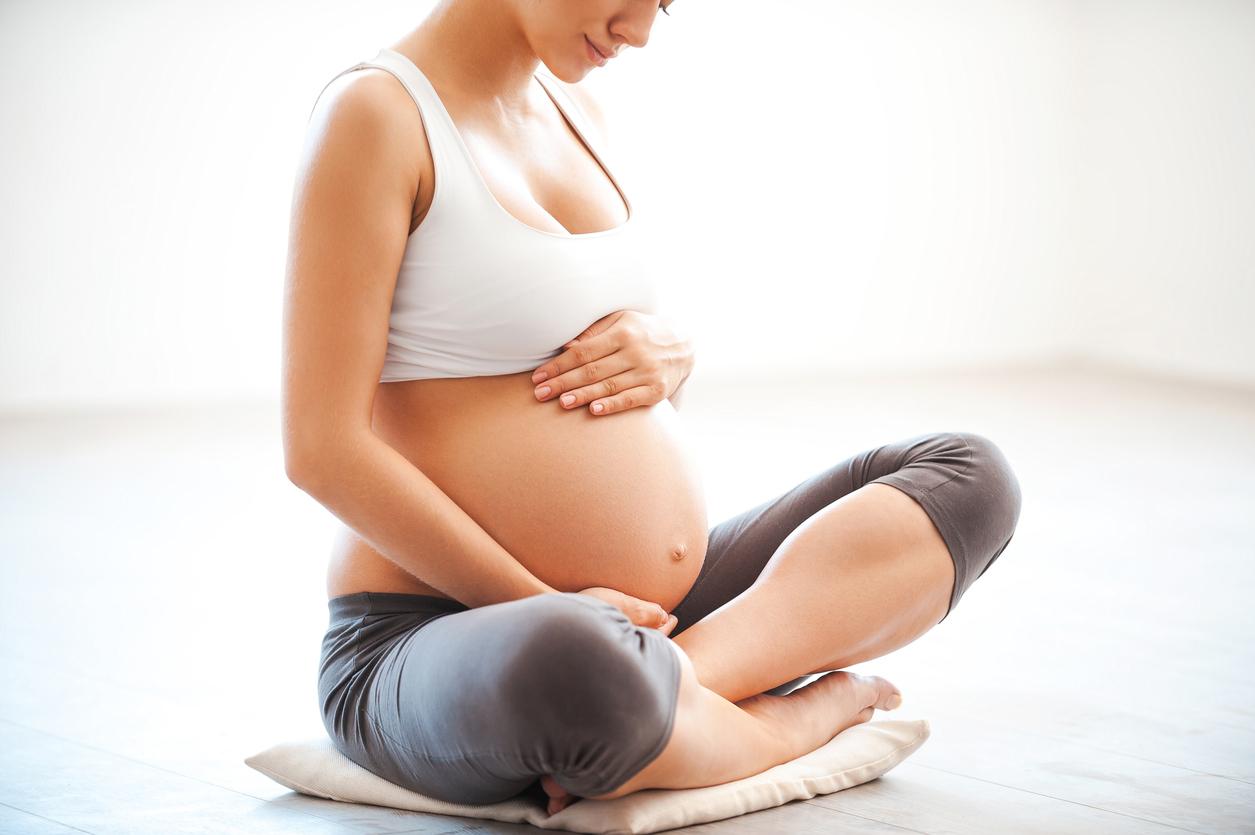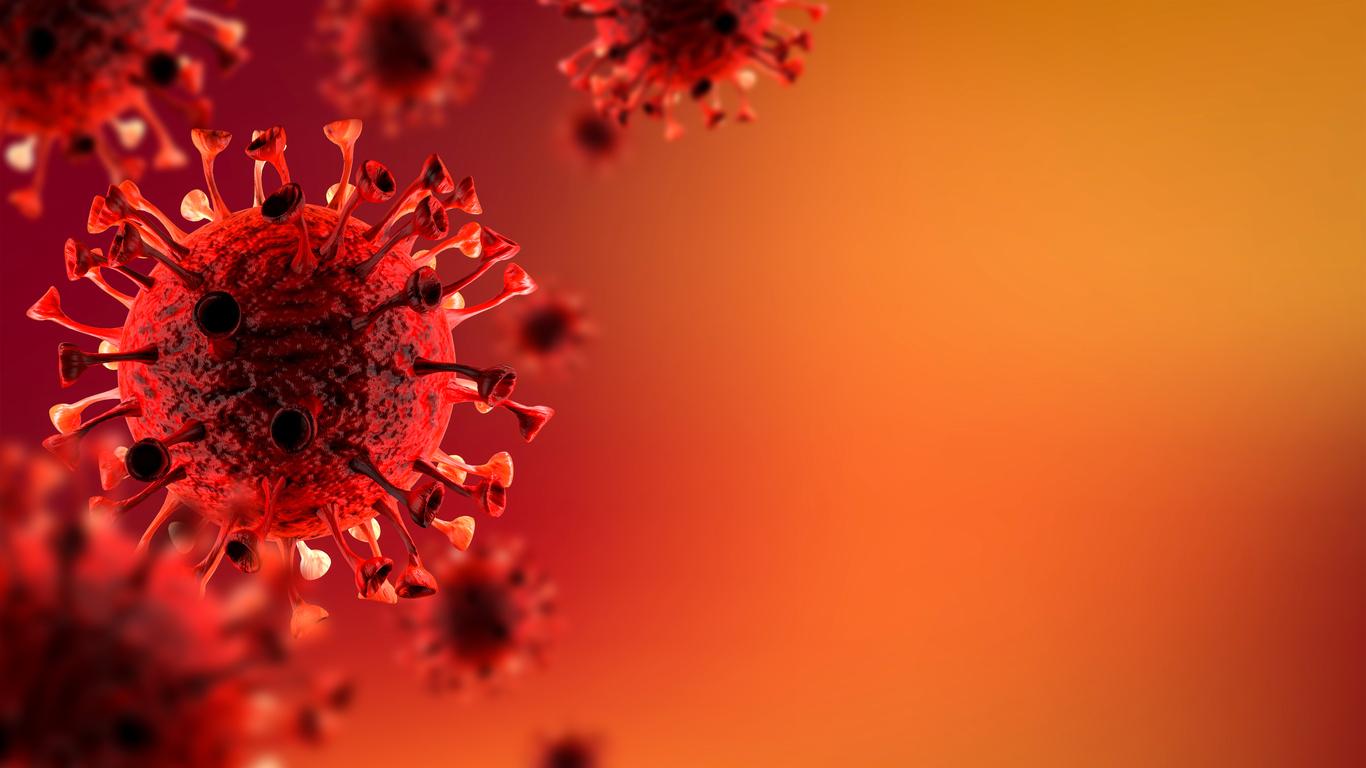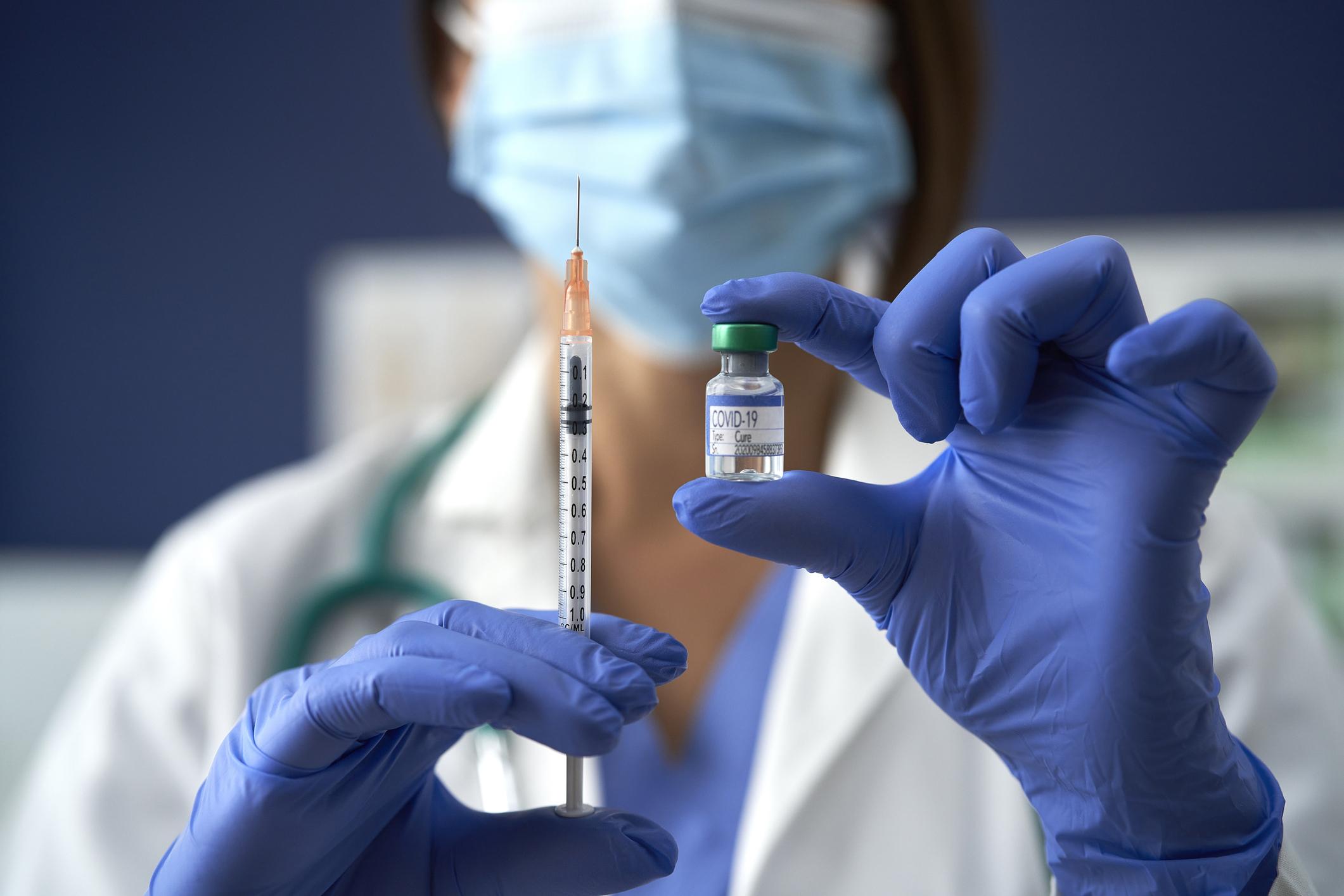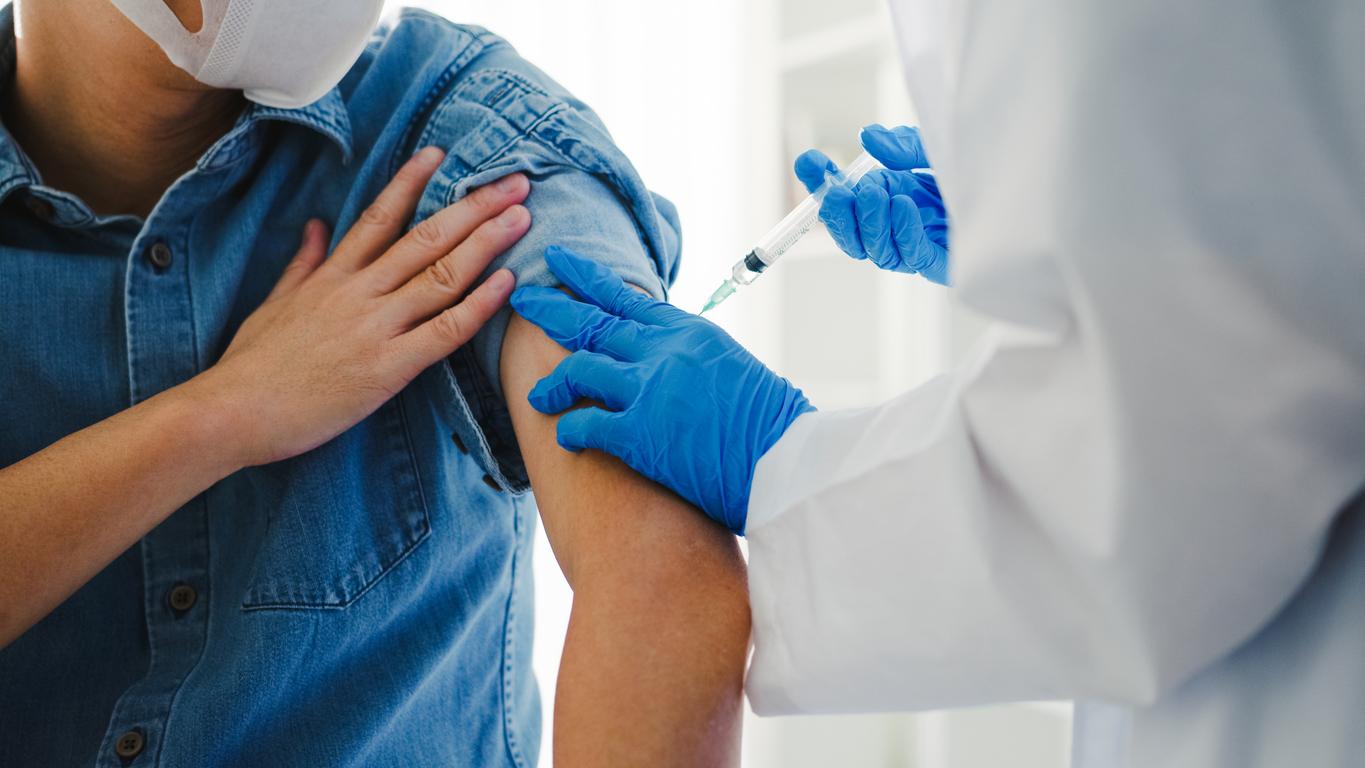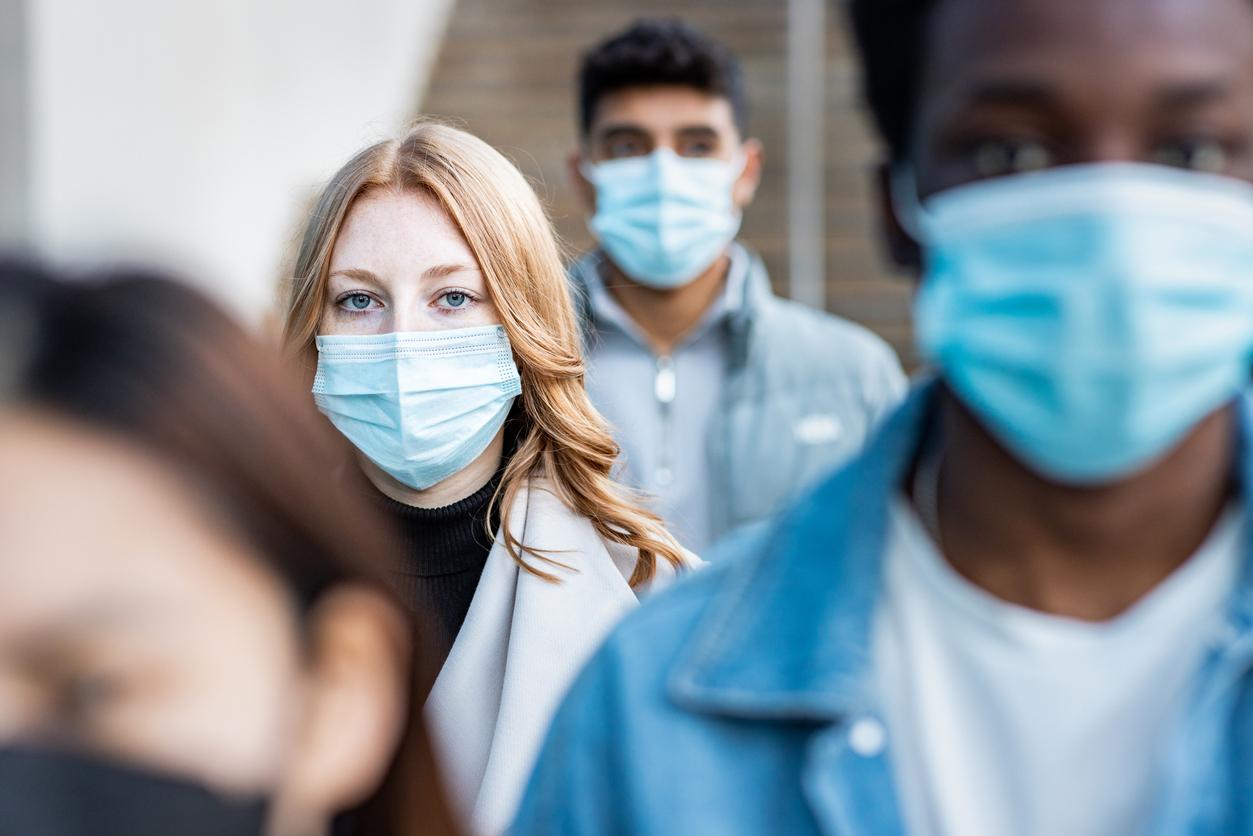A new study claims that neither surgical masks nor cotton masks effectively filter out SARS-CoV-2, letting the virus spread if its owner coughs.
-1586510254.jpg)
- Wearing a mask is at the heart of the debate on the conditions for future deconfinement
- Studies show that wearing a surgical mask does not protect against SARS-CoV-2
- On the other hand, these masks can prevent carriers of the virus from contaminating those they meet.
The government is campaigning for the wearing of masks, supported by a site which explains how to make your own mask. An approach supported by professionals like Philippe Dumas who explains it in our podcast. A study shows that surgical and cotton masks are not effective in preventing the spread of SARS-CoV-2. The study, conducted at two hospitals in Seoul, South Korea, found that when Covid-19 patients coughed into either type of mask, virus droplets were released into the environment and the skin. outer surface of the mask. The findings were published in Annals of Internal Medicine.
This confirms the importance of hand hygiene
The purpose of these masks is to prevent transmission of the virus. With a shortage of surgical masks, cotton masks have sparked interest as a substitute. Researchers from theAsan Medical Center and some University of Ulsan College of Medicine, in Seoul, asked 4 Covid-19 patients to cough 5 times each on a petri dish. They performed this operation without a mask, with a surgical and cotton mask. By then studying the surface, the researchers realized that in all cases SARS-CoV-2 is present. These results suggest that recommendations to wear masks to prevent the spread of Covid-19 may not be effective.
The researchers also note that they found more contamination on the outside than on the inside surfaces of the masks. Alternatively, small SARS-CoV-2 aerosols generated during high-velocity coughing could penetrate masks. However, this assumption can only be valid if coughing patients do not exhale large particles, which should settle on the inner surface despite high velocity. These observations confirm the importance of hand hygiene after touching the outer surface of masks.
The researchers clarify that this study does not reflect the actual transmission of infection among patients with Covid-19 wearing different types of masks. They don’t know if the masks shorten the distance the droplets travel during coughing. Further study is needed to determine whether face masks decrease transmission of the virus from asymptomatic individuals or from people with suspected Covid-19 who do not cough.
.







